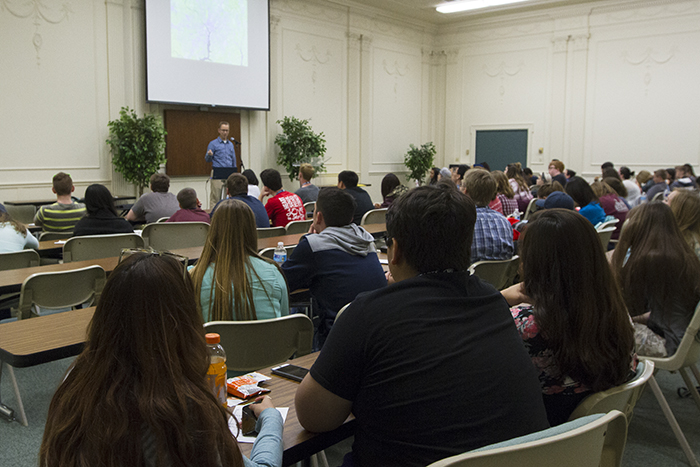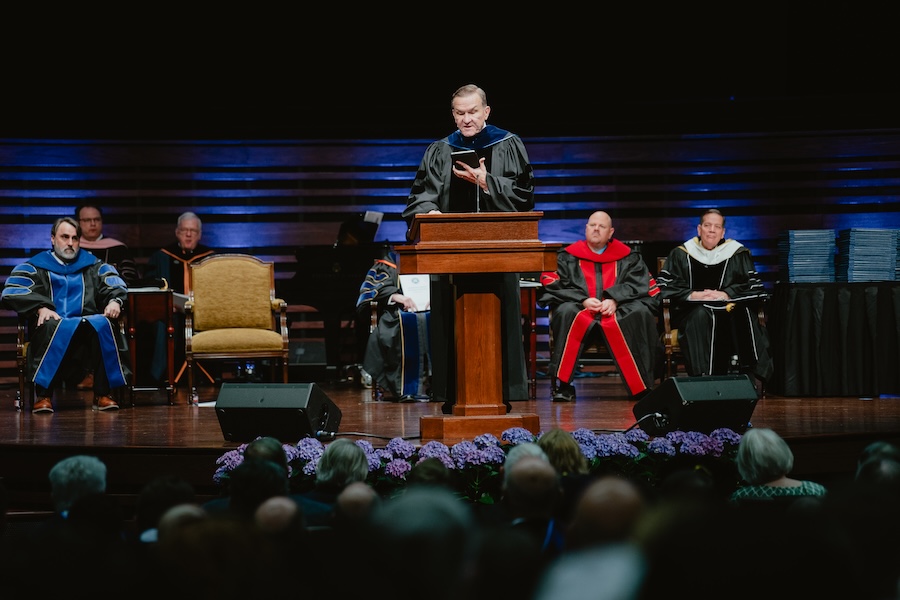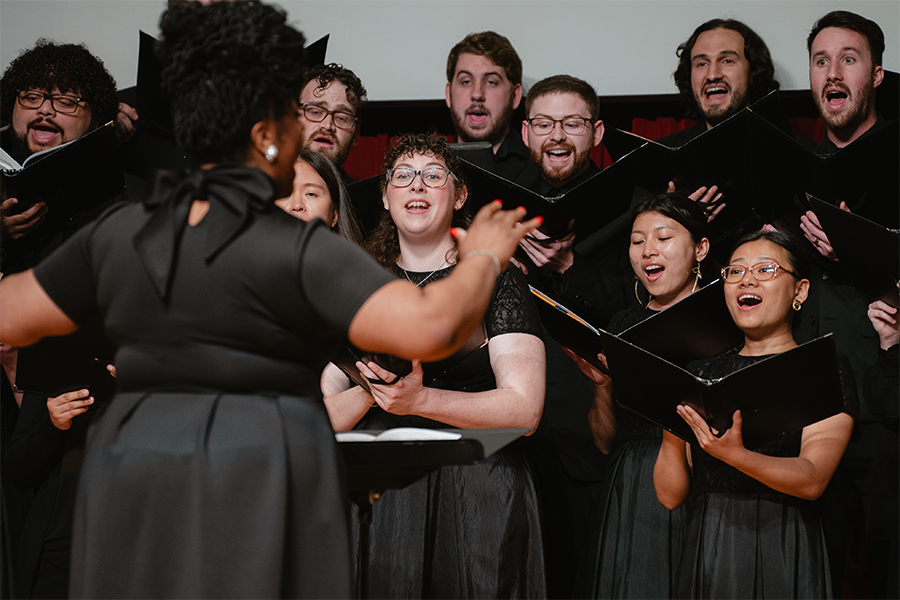YML equips leaders for Christ-centered youth ministry in a changing culture

Following the 48th annual Youth Ministry Lab (YML), Professor of Student Ministry Richard Ross said youth ministers left refreshed and encouraged by the worship and teaching of conference leaders. He continued, “[YML] uniquely keeps a laser focus on the enthroned majesty of King Jesus, on impacting parents and families, on comprehensive discipleship, and on mobilizing a young generation for evangelism locally and globally.”
More than 700 youth ministers, workers and teenagers from across the country attended YML, April 1-2. During the adult leadership conference, attendees heard from main stage speaker Mark Hall, student minster of Eagle’s Landing First Baptist Church, and worship was led by the Sixteen Cities band. In addition to main sessions, breakout tracks provided further training for ministers, volunteers and wives in the areas of student ministry; girls ministry; and Korean, Hispanic and multi-ethnic youth ministry. While the adult conference met, teenagers gathered in Truett Auditorium for the student conference to hear from speaker Nathan Lino, lead pastor of Northeast Houston Baptist Church, and worship from the David Gentiles Band.
Mark Hall shared with attendees the many valuable lessons he learned in his years of youth ministry. He said it was in his first year as a student minister that he learned to stop striving to be the “cool youth minister.” He added, “Teenagers never needed me to be cool. All they needed was somebody to love Jesus and love them.”
During this time, he also learned the value of utilizing the talents and gifts of other church members as well as the students in his youth ministry. Realizing that each student in his ministry already had something to offer, he began to work at finding ways to involve them in not only typical avenues of ministry (singing and teaching), but to allow them to lead using their unique skills.
“Those teenagers started having ownership, and now it’s their house,” Hall said. “Give your student ministry back to your students.”
Assistant Professor of Ethics Evan Lenow spoke during one of the first breakout sessions, discussing the importance of leading teenagers to understand a biblical gender identity when culture is telling them a contradictory message. Noting that culture defines gender as a self-identified system, Lenow said it is important for leaders and parents to teach from an early age what it means to be a man and what it means to be a woman. “Otherwise, if we allow culture to teach them what it means, they will learn something entirely different than what God’s expectations are for complementary roles between men and women,” he said.
During the trying time of emotional and physical transition for teenagers, Lenow said it is important for leaders to shepherd their youth through this season of life, affirm the truth of God’s design for men and women, and provide a safe outlet to discuss their battle with gender identity. He concluded, “Walk with them through it, and be willing to listen.”
Ricky Chelette, executive director of Living Hope Ministries, further discussed ministering to teenagers who are struggling with gender identity and same-sex attraction. As culture rapidly changes, Chelette noted that teenagers are receiving shifting and confusing messages from both culture and the church.
In knowing how to respond to their students’ questions, Chelette said ministers must know the truth. Although seemingly obvious, he explained that oftentimes youth do not even hear a biblical view of gender from their churches.
What is also often communicated, Chelette added, is that a person is oriented toward homosexuality or transgenderism. “You’re not oriented toward homosexuality as an unchangeable, immutable reality,” Chelette clarified. “What you are oriented toward is sin, and that sin manifests itself in a million ways. Ever since Genesis 3, we have all been prone toward sin.”
“But Jesus is the answer to the sin problem that we have,” he continued. “So you already possess the answer to help people toward their sin. We have a Savior.”
In order to minister to teenagers struggling with same-sex attraction or transgenderism, Chelette said youth ministers must create a safe place for teenagers who struggle with same-sex attraction. To further explain what a “safe” youth ministry looks like, he encouraged youth ministers and leaders to evaluate what kind of events and activities they are facilitating, the type of language they use in their messages, and how approachable they are to those who might be struggling.
“Does your youth group look like a place where people pretend to be holy all the time?” Chelette asked. “If you pretend to be holy, nobody is going to want to be around you because they think they will mess up the perfectness.”
Randy Newman, author of such books as Questioning Evangelism and Bringing the Gospel Home, addressed the challenges ministers and students may face when doing evangelism and communicating the Gospel to teenagers in a contemporary culture. Focusing on the tool of “asking good questions,” Newman explained that learning to apply this method makes evangelism more of a two-way dialogue rather than a one-way monologue.
“We are proclaiming a message that’s powerful, that’s true, that’s wonderful,” Newman said. “But for many people, it is really different. It is counter to everything that they are hearing.”
He said it is important to teach three skills: declare the Gospel and state it precisely; know how to answer good questions people have; and develop the skill of dialoging the Gospel. He further explained that asking questions such as “Can you explain that to me?” engages people with the listening and thinking process.
“Sometimes we Christians naturally accept being on the defensive. That’s good, and sometimes we need to do that,” Newman said. “But sometimes we need to put them on the defensive: gently, graciously, kindly.”
Next year’s YML will take place April 7-8, 2017. To learn more about the upcoming conference, including how to register, visit youthministrylab.com.



